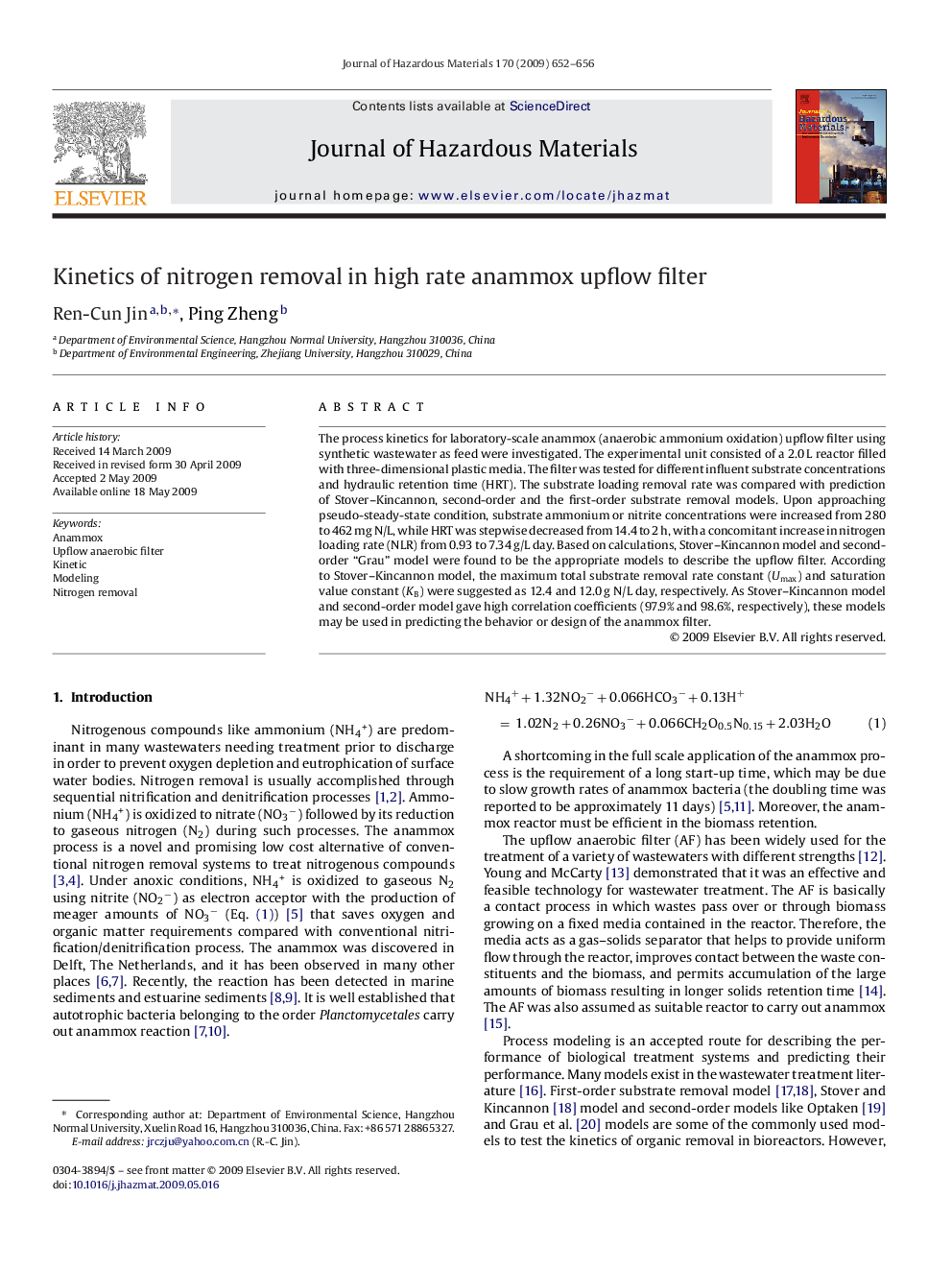| Article ID | Journal | Published Year | Pages | File Type |
|---|---|---|---|---|
| 581217 | Journal of Hazardous Materials | 2009 | 5 Pages |
Abstract
The process kinetics for laboratory-scale anammox (anaerobic ammonium oxidation) upflow filter using synthetic wastewater as feed were investigated. The experimental unit consisted of a 2.0Â L reactor filled with three-dimensional plastic media. The filter was tested for different influent substrate concentrations and hydraulic retention time (HRT). The substrate loading removal rate was compared with prediction of Stover-Kincannon, second-order and the first-order substrate removal models. Upon approaching pseudo-steady-state condition, substrate ammonium or nitrite concentrations were increased from 280 to 462Â mg N/L, while HRT was stepwise decreased from 14.4 to 2Â h, with a concomitant increase in nitrogen loading rate (NLR) from 0.93 to 7.34Â g/L day. Based on calculations, Stover-Kincannon model and second-order “Grau” model were found to be the appropriate models to describe the upflow filter. According to Stover-Kincannon model, the maximum total substrate removal rate constant (Umax) and saturation value constant (KB) were suggested as 12.4 and 12.0Â g N/L day, respectively. As Stover-Kincannon model and second-order model gave high correlation coefficients (97.9% and 98.6%, respectively), these models may be used in predicting the behavior or design of the anammox filter.
Related Topics
Physical Sciences and Engineering
Chemical Engineering
Chemical Health and Safety
Authors
Ren-Cun Jin, Ping Zheng,
